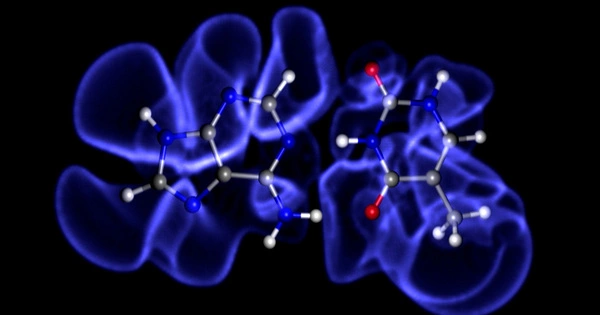Quantum computing is a type of computing that operates on quantum mechanics principles. Data in traditional computing is encoded in bits, which can be either 1 or 0. Quantum computing, on the other hand, employs qubits, which can be both 1 and 0. Because many calculations can be performed at the same time, quantum computing is extremely powerful. That is why it is regarded as the future of artificial intelligence and data science.
Self-discovery of pulses that stabilize quantum systems in the face of environmental noise is driven by machine learning. Controlling the trajectory of a basketball is simple: all we need to do is apply mechanical force combined with human skill. Controlling the movement of quantum systems like atoms and electrons, on the other hand, is much more difficult because these minuscule scraps of matter are frequently thrown off course in unpredictable ways. Movement within the system degrades (a process known as damping), and noise from environmental effects such as temperature also interferes with its trajectory.
One method of combating damping and noise is to apply to the quantum system stabilizing pulses of light or voltage of varying intensity. Okinawa Institute of Science and Technology (OIST) researchers in Japan have demonstrated that they can use artificial intelligence to discover these pulses in an optimized manner in order to appropriately cool a micro-mechanical object to its quantum state and control its motion. Their findings were published as a Letter in Physical Review Research 2022.
Technologies built from quantum systems offer immense possibilities. But to benefit from their promise for ultraprecise sensor design, high-speed quantum information processing, and quantum computing, we must learn to design ways to achieve fast cooling and control of these systems.
Dr. Bijita Sarma
When kept at a high temperature, or even at room temperature, micro-mechanical objects that are larger than an atom or electron behave classically. However, if such mechanical modes can be cooled to their lowest energy state, known as the ground state by physicists, quantum behavior may be realized in such systems. These mechanical modes can then be used as an ultra-sensitive force, displacement, gravitational acceleration, and other sensors, as well as for quantum information processing and computing.
“Technologies built from quantum systems offer immense possibilities,” said Dr. Bijita Sarma, the article’s lead author, and a Postdoctoral Scholar at OIST Quantum Machines Unit in the lab of Professor Jason Twamley. “But to benefit from their promise for ultraprecise sensor design, high-speed quantum information processing, and quantum computing, we must learn to design ways to achieve fast cooling and control of these systems.”

Her and her colleagues’ machine learning-based method demonstrates how artificial controllers can be used to discover non-intuitive, intelligent pulse sequences that can cool a mechanical object from hot to cold temperatures faster than other standard methods. The machine learning agent discovers these control pulses on its own. The research demonstrates the importance of artificial machine intelligence in the development of quantum technologies.
Quantum computing has the potential to revolutionise the world by enabling high computing speeds and reformatting cryptographic techniques. That is why many research institutes and big-tech companies such as Google and IBM are investing a lot of resources in developing such technologies. But to enable this, researchers must achieve complete control over the operation of such quantum systems at very high speed, so that the effects of noise and damping can be eliminated.
“In order to stabilize a quantum system, control pulses must be fast, and our artificial intelligence controllers have shown promise in this regard,” Dr. Sarma explained. “Thus, our proposed method of quantum control using an AI controller could be a breakthrough in the field of high-speed quantum computing, as well as the first step toward self-driving quantum machines, similar to self-driving cars. We believe that such methods will attract a large number of quantum researchers for future technological developments.”
OIST researchers have proposed a method of quantum control using an #AI controller-Showing the promise of artificial intelligence in fast quantum computation and control. @PhysRevResearch https://t.co/xif12TqRtY
— OIST (@OISTedu) December 6, 2022
















